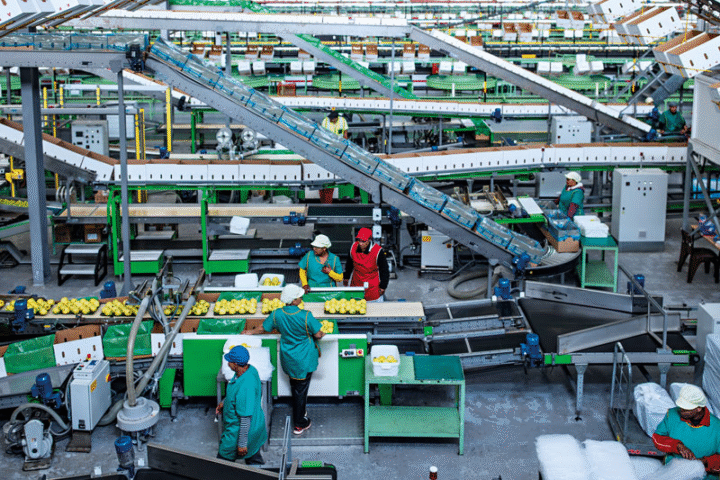For centuries, African textiles have told stories of culture, identity, and heritage. Among these, Ankara fabric — bold, vibrant, and symbolic — has become one of Nigeria’s most recognizable cultural exports. Once seen primarily on local markets and festive occasions, Ankara now appears on international runways, in global fashion magazines, and in wardrobes from New York to London.
Behind this rise is not only the creativity of Nigerian designers but also the power of digital platforms. While Lagos fashion shows and African diaspora communities have played their part, technology has quietly become the bridge between local artisans and global buyers. One platform in particular, Shopify, has enabled Nigerian fashion entrepreneurs to showcase Ankara designs to international audiences without needing brick-and-mortar stores or expensive intermediaries.
This story is about more than e-commerce. It’s about how a fabric rooted in African identity is being reimagined for the global stage, and how Nigerian entrepreneurs are turning creativity into sustainable businesses.
The Global Appeal of Ankara
Ankara’s origins are complex — it has ties to Dutch wax prints introduced during colonial trade, but over time it has been fully embraced and reinvented as African identity wear. Today, Ankara isn’t just fabric; it is a symbol of resilience, artistry, and cultural pride.
International interest in African fashion has surged in recent years. Celebrities wear Ankara gowns at red-carpet events. Major fashion houses borrow from African aesthetics in their seasonal collections. On Instagram and TikTok, diaspora influencers blend Ankara with streetwear, creating fusion styles that appeal to younger audiences.
Yet, despite this growing demand, access has historically been limited. Buyers abroad often struggled to source authentic fabrics and designs. Nigerian entrepreneurs recognized this gap — and Shopify became the tool to close it.
Why Shopify Became the Platform of Choice
For many Nigerian designers, building a traditional e-commerce site from scratch was out of reach. Hiring developers, managing servers, and integrating secure payments were costly and time-consuming. Shopify offered an alternative: a ready-made platform that could be set up in days, with professional storefronts, integrated payment gateways, and inventory management.
The mobile-first nature of Shopify also mattered. In Nigeria, where much online activity happens on smartphones, entrepreneurs could manage their entire business — from uploading new Ankara collections to checking customer orders — on the go.
Most importantly, Shopify allowed for global reach. A Nigerian designer in Lagos could sell to customers in Atlanta, London, or Paris without needing a local distributor. By supporting multiple currencies and payment methods, the platform made cross-border trade less intimidating.
The Entrepreneurial Stories Behind the Fabric
Consider the story of Tola, a 29-year-old designer from Abuja. What began as a small tailoring business for friends and family grew into an online brand once she set up a Shopify store. By showcasing custom-made Ankara gowns and accessories, Tola attracted diaspora buyers who longed for authentic Nigerian designs but had no access to local tailors. Within two years, her Shopify store became her primary source of income, with 70% of sales coming from outside Nigeria.
Or take Adewale, who runs a men’s fashion line in Lagos. He realized that while local demand for Ankara suits was steady, the global appetite was far larger. By creating a Shopify catalog of ready-to-wear designs, he was able to tap into demand from Black professionals in Europe and the U.S. looking to blend cultural pride with modern office wear.
These stories illustrate a broader trend: Nigerian entrepreneurs are not only exporting products but exporting identity. Through Shopify, they’ve found a way to merge tradition with commerce, creating businesses that thrive locally while resonating globally.
Overcoming Local Challenges
The journey, however, is not without obstacles. Payment integration remains a major hurdle. While platforms like Paystack and Flutterwave now allow Nigerian merchants to process both local and international transactions, many designers still face rejections from customers unfamiliar with African payment systems. Shopify’s integration with PayPal and credit cards has eased this, but transaction fees and occasional restrictions remain issues.
Logistics is another challenge. Shipping fabric or clothing across borders can be expensive and unreliable. Some entrepreneurs solve this by setting up partnerships with diaspora-based logistics companies that consolidate shipments, reducing costs. Others focus on lightweight products like Ankara headwraps and accessories, which are cheaper to ship.
Despite these hurdles, the determination of Nigerian fashion entrepreneurs remains unshaken. The global appetite for African fashion is strong enough to justify creative problem-solving.
Marketing Ankara to the World
Having a Shopify store is only half the battle. Attracting customers requires marketing, and Nigerian entrepreneurs have become adept at using digital tools. Social media is the most powerful weapon.
Instagram has become the runway. Designers use reels and photoshoots to showcase vibrant styles. TikTok influencers create “Ankara styling challenges,” blending traditional fabrics with contemporary fashion. Facebook ads target diaspora communities in the U.S., U.K., and Canada with messages of cultural pride and authenticity.
Email newsletters keep customers updated about new collections and exclusive discounts. Some designers even run virtual fashion shows streamed on YouTube, turning their Shopify stores into interactive experiences rather than static catalogs.
The narrative behind each product is also a marketing asset. Unlike mass-produced Western fast fashion, each Ankara piece carries cultural weight. Entrepreneurs weave storytelling into their product descriptions — highlighting the meaning of patterns, the heritage of fabrics, and the craftsmanship behind each piece. This storytelling resonates deeply with global audiences seeking authenticity.
The Cultural and Economic Impact
The rise of Shopify-enabled Ankara businesses is reshaping not only Nigerian fashion but also the perception of African creativity abroad. These entrepreneurs are proving that African fashion is not a seasonal trend but a sustainable industry.
Locally, the ripple effects are significant. SMEs hire tailors, fabric suppliers, photographers, and digital marketers, creating jobs across the value chain. Young Nigerians, once skeptical about fashion as a career path, now see it as a legitimate route to global entrepreneurship.
Culturally, the export of Ankara strengthens diasporic ties. For Africans abroad, wearing Ankara sourced directly from Nigeria is a way of maintaining identity. For non-Africans, buying Ankara is often a statement of appreciation for African culture.
Looking Ahead: The Future of Ankara on Shopify
The future looks promising. As payment systems mature, logistics networks improve, and internet penetration deepens, Nigerian fashion entrepreneurs will gain even more tools to grow. Shopify is already experimenting with integrating AI-driven personalization, augmented reality for virtual try-ons, and advanced analytics — features that could make online shopping for Ankara as immersive as visiting a physical boutique.
Moreover, global fashion trends increasingly favor diversity and authenticity. This positions Nigerian entrepreneurs at the forefront of an industry eager for fresh perspectives. With Shopify as their stage, they have the chance not only to sell products but to redefine how the world sees African fashion.
Conclusion
Ankara is more than fabric; it is identity, heritage, and art. Nigerian fashion entrepreneurs are proving that with creativity, resilience, and the right tools, they can take this fabric global. Shopify has become their partner in this journey — offering the infrastructure to bridge Lagos and London, Abuja and Atlanta, Port Harcourt and Paris.
In doing so, these entrepreneurs are not just building businesses. They are rewriting the global fashion story, one stitch of Ankara at a time.










